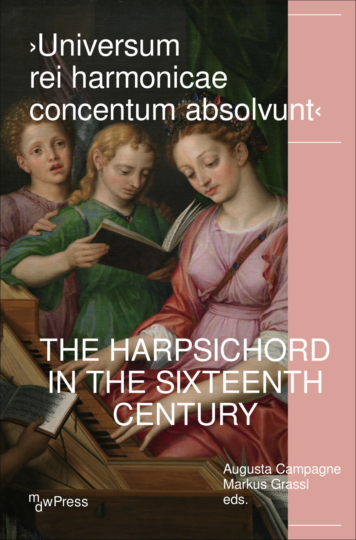Augusta Campagne and Markus Grassl (eds.)
Contents
1 Introduction
Augusta Campagne and Markus Grassl
2 The Rhetoric of Sweetness: Towards Ideals of Perception and Performance in Sixteenth-Century Keyboard Music
Catalina Vicens
3 Keyboard Tablatures and Imaginary Instrumental Interchange in the Sixteenth Century
John Griffiths
4 Hacking the System: Italian Keyboard Intavolatura and Scribal Habit
Ian Pritchard
5 Singing, Reading, Writing, Playing: Practising with Tomás de Santa María
August Valentin Rabe
6 ‘Nach seinem selbst gefallen mit der Mensur wexln’: Instances in Sixteenth-Century Keyboard Music Where Ornamentation and Changing Note Values Might Induce the Player to Vary the Beat
Domen Marinčič
7 On the Performance Practice of Andrea Antico’s Frottole intabulate da sonare organi, libro primo (Rome, 1517)
Fabio Antonio Falcone
8 Le mani di Cecilia: Hand Position and Fingering on Keyboards in Italian Iconographical Sources of the Renaissance
Maria Luisa Baldassari
9 From Lisbon to Shewa via Goa: Renaissance Keyboards in the Christian Kingdom of Sixteenth-Century Ethiopia
Janie Cole
10 Antonio de Cabezón at the Centre of the World: Repertoire, Interpretation and Meaning
Andrés Cea Galán
11 Appendix
About mdwPress
This work is licenced under the Creative Commons Attribution 4.0 International Licence.



